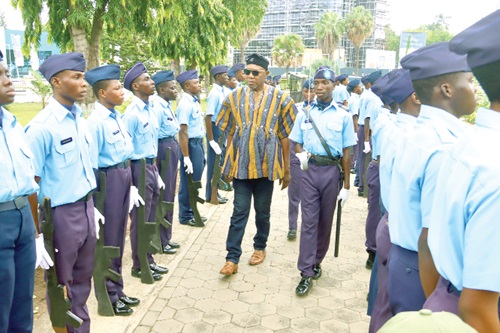The recent spike in violence and acts of indiscipline in Ghana’s senior high schools is a growing national concern that demands urgent and coordinated action.
This troubling trend threatens not only the safety of students and teachers but also the overall integrity of our educational system and the broader social fabric.
A study by the Misornu Safety Centre, a public-interest NGO focused on building a safety-first mindset in communities, workplaces and institutions, has documented that between 2022 and 2025, 27 senior high schools across Ghana experienced serious violence-related incidents.
These ranged from student-on-student assaults and teacher attacks to property destruction and fatal clashes, some categorised as first-degree felonies.
A February 12, 2025, publication by Graphic Online quoted GNAT General Secretary Thomas Musah decrying the alarming levels of student indiscipline.
He cited machete-led punishments at Accra Academy, violent clashes at Kinbu Sec/Tech, Accra High, Kaneshie Technical and Kumasi Technical Institute, and injuries to both teachers and police officers who intervened during riots at schools in Accra and Kumasi.
These incidents reflect a disturbing pattern that is now endemic across several second-cycle institutions.
Commonly cited causes include student indiscipline, poor parental guidance, lax enforcement of school rules and substance abuse.
However, beyond these behavioural issues lies a deeper security consciousness gap.
Too often, responses remain reactive—police interventions and prosecutions, rather than proactive strategies that address root causes and change student behaviour.
Framework
The security framework in schools must evolve.
Effective prevention requires structured systems of risk assessment, behavioural monitoring, situational awareness and community-driven safety programming.
Stakeholders—school authorities, PTA, media and security experts—must collaborate to shift the safety conversation from punitive to preventive.
Established in 1954, the National Cadet Corps has long championed youth discipline, volunteerism and civic duty.
With over 76,000 student members, it remains one of the most organised and respected youth platforms in the country.
The Corps actively supports public order efforts and offers a tested model for school discipline and student leadership development.
The Misornu Safety Centre proposes mainstreaming Volunteer Cadet Units as an integral tool for crime prevention and youth engagement in schools.
Cadet programmes, when strengthened and strategically deployed, can instil discipline, build leadership capacity and promote a culture of peer-led conflict resolution.
Following a March 11, 2025, engagement with Cadet leaders in Accra, the following recommendations were made to institutionalise the Cadet Corps as a frontline youth crime prevention mechanism:
• Nationwide youth crime prevention programme driven by Cadet units.
• Mandatory cadet orientation for all first-year SHS students.
• Emotional Intelligence and Mediation Training for Cadets.
• Formation of school-based mediation clubs.
• Educator involvement in training and communication.
• Appointment of School Safety Liaison Officers within the Cadet Corps.
The current approach of waiting for crises before responding must be replaced with resilient systems and preventive structures.
Our schools should not become security zones reliant on police patrols.
Instead, they should be empowered communities of discipline, where students play a proactive role in maintaining safety and resolving disputes.
By embedding volunteerism, emotional intelligence and civic responsibility through cadet-led initiatives, Ghana can build a generation of responsible, security-conscious youth.
This transformation will necessitate policy coordination, resource allocation and a national commitment to integrating safety into the core of our educational system.
“The situation in our schools is not hopeless.
With a security-first mindset, community support and best-practice models like the Cadet Corps, we can turn the tide.”
The writer is a Certified Protection Professional (ASIS International), CEO of MISORNU Safety Centre/former Coordinator of the Police Volunteer Cadet Corps.
E-mail: davidsenanueklu@gmail.com

